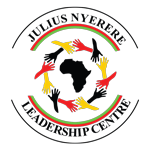A Lifetime of Recollections: Telling My Life Story My Way
My life in many ways is a mirror of the ups and downs of my people’s struggles through history and politics spanning over seven decades. As an ex-seminarian and University lecturer My Story captures the colours of an interesting, fulfilling and well lived life but which as a backdrop reveals the resilience and endurance of a people and a country. To properly tell My Story I am looking for a researcher, a historian and an anthropologist to give it context and at the same time give it relevance relate it to the socio-political events of the times.
Rationale and Purpose of the Assignment
This documentation when completed is about life narratives, memory and time as basic elements in My Story and autobiography. The main aim for telling My Story in my own words is to pass on lived experiences and lessons learned to my children and their children and possibly to a broader community. More importantly however, I believe that to document important milestones in my lived life is to provide another important story of our times as a people and a country through real-life lived experience.
A Call for Applications
Assistance is needed to undertake a narrative documentation of the memoirs of an aged ex-seminarian and retired University lecturer. Although the intent is to cover his lifetime recollections and related socio-cultural, political and cultural contexts, chronology should not dictate the order, rather this should be a more organic process led by the subject, with the ‘researcher documentalist’ helping to curate the whole, and identify and bracket those vignettes that best portray the individual, as well as the specific period/context.
The narrative should be complemented by interviews with individuals who feature in the story as it evolves, including but not limited to friends, family, as well as cultural and other personalities. An important part of the story are the images, pictures, photographs and newspaper clips.
Applicant’s Attributes
Applications are welcome from seasoned researchers and documentalists well-versed in Qualitative, ethnographical research methods.
Minimum Qualifications
- Master’s degree or equivalent in History, Anthropology, Social Sciences or related fields.
- Have proven experience and skills in qualitative research methods.
- Have proven experience in qualitative data collection in rural communities and strong interpersonal and communication skills.
- Residents of Ntungamo or Kisoro (or areas close to the sites) will have an added advantage.
- Patience and an ability to listen and work well with an old person who “may remember events differently or insist on repeating things” is another added advantage.
In addition, the ‘researcher documentalist’ should have:
- Sound knowledge and interest in the history of Uganda and border Countries including the DRC and Kagera River Basin;
- An ability to curate and relate images, photographs and newspaper clips to the main narrative;
- An excellent command of the English Language and local dialects spoken across central and south-western Uganda;
Anticipated Timeline for the Assignment
The ‘researcher documentalist’ should be available to work full time on the project for a period of no less than six (6) months. Initial background and archival research and documentation of national political and sociological events starting in 1937 in print and images is expected to begin in November 2023.

